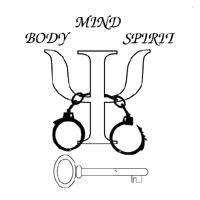One of the tenants to Select Emotional Alternatives Cognitive Application Processing (SEACAP) is: "It is not so much what happens to me, it is more telling of me how I respond."
What happens to us is experienced as Select Emotional Alternatives (e.g., disgust, affection, anger, intrigue, et cetera). How we respond, expresses what we perceive as happening to us. What we perceive is our Cognitive Application Processing (e.g., what thoughts we filter our emotions through).
No truer statement exists beyond: “People do what they know, and through this perspective, we all teach people how to treat us.” As in the concept of intelligence, it is not what you know in terms of content, rather how you process moment-to-moment information to gain what you know. After all, no one, absolutely no on is all knowing and void of insecurities. In other words if you are fixated upon this, you cannot DISCOVER that. This is a functional perspective. With this point made, in any given situation, I suggest, we all learn how to learn to validate, negotiate, and compromise what we know in order to maximize your opportunity at power OF control.
Another tenant to SEACAP is: "Whatever we experience allow happen." What we allow to happen is our experience of either lost power OF control or embrace power OF control. We decide, we decide through the validation of our emotional and cognitive capabilities we select from or alternatives capabilities to experience comfort and discomfort. For many, lost power OF control may very well be the fanciful fictional impressions of intimidating insecurity anchoring them to dysfunction (“Why me…I can’t…I will never…”). Alternatively, we may embrace power OF control and excite ourselves in the functional impression of empowerment to make emotional change happen. It all depends upon what we, you validate, negotiate, and compromise upon as real vs. ideal (e.g., wanting).
And of course the most basic tenant to SEACAP is: “The human condition is a wanting condition; wanting by need of competence and independence.”
To validate is to get real with ourselves in relationship with our worlds and appreciate the choice is ours. To negation, is to facilitate personal responsibility to maximize that which brings us toward our challenging, functional, healthy goals. To compromise is to hold ourselves to make emotional behavioral change happen in our lives. No one can do it for us.
With these points made, we all should learn to learn how we respond to any given situation and then we will DISCOVER what we select, validate as emotional (what happens to us). Through validation we present ourselves with the opportunity to DISCOVER the perspectives through which we operate. Do we validate lost power OF control in our selves in relation to others? This is anchoring. Or do we validate power OF control in ourselves in relation to others? This is empowerment. In either case, what we validate necessitate how we respond. The simple truth underpins all of our perspectives. “We are our best friends and our worse enemies.” This is the core of our emotional intelligence. The question to you is: “Do you negotiate and compromise your perspectives in primary relationship with yourself and the world you live?”
Thursday, January 21, 2010
Subscribe to:
Post Comments (Atom)







No comments:
Post a Comment
If you should have any problems registering for this blog, please contact me directly: peterstone@MyDiscover.org